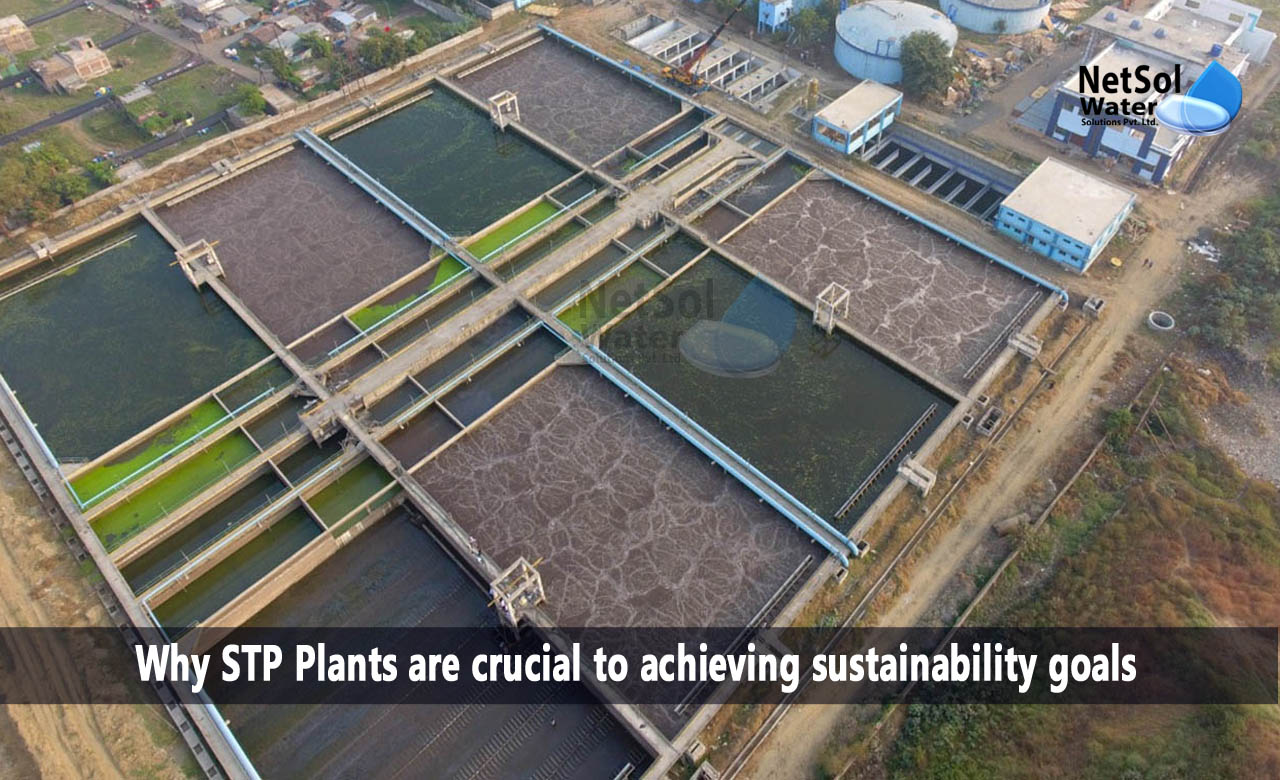Why STP Plants are crucial to achieving sustainability goals?
As the world continues to prioritize sustainability, manufacturers are increasingly recognizing the importance of sustainable supply chains. At the heart of this endeavor is the integration of environmentally responsible practices into every aspect of the production process. One crucial component of sustainable supply chains in manufacturing is the inclusion of sewage treatment plants (STPs). These facilities play a vital role in managing wastewater and promoting a cleaner, more sustainable manufacturing industry.
In this blog, we will explore why sewage treatment plants are crucial to achieving sustainability goals and how they contribute to sustainable supply chains in manufacturing.
Wastewater Management and Environmental Stewardship:
Sewage treatment plants are essential for effective wastewater management. They employ advanced treatment technologies to remove pollutants and contaminants from wastewater, ensuring that only environmentally safe water is discharged back into natural water bodies. By connecting with STPs, manufacturers can actively participate in environmental stewardship by minimizing the negative impacts of their wastewater discharges, thus preserving water quality and protecting ecosystems.
Compliance with Environmental Regulations:
Sewage treatment plants play a critical role in helping manufacturers meet and comply with stringent environmental regulations. By partnering with STPs, manufacturers ensure that their wastewater is treated to meet the required standards before being discharged. This proactive approach helps manufacturers avoid penalties, fines, and potential damage to their reputation resulting from non-compliance with environmental regulations. Compliance with regulations is not only a legal obligation but also a demonstration of the manufacturer's commitment to sustainable practices and responsible operations.
Water Conservation and Resource Efficiency:
Water scarcity is a global concern, and responsible water management is crucial for sustainable supply chains. Sewage treatment plants enable manufacturers to conserve water by treating and reusing wastewater. Treated wastewater, also known as reclaimed water or recycled water, can be utilized for non-potable purposes within the manufacturing processes, such as cooling, cleaning, or irrigation. By incorporating reclaimed water into their operations, manufacturers reduce their reliance on freshwater sources, conserve water resources, and minimize their environmental impact.
Resource Recovery and Circular Economy:
Sewage treatment plants provide opportunities for resource recovery, contributing to the principles of a circular economy. Wastewater contains valuable resources such as organic matter, nutrients, and energy. STPs employ advanced technologies to extract and repurpose these resources, transforming waste into valuable inputs for manufacturing processes. For example:
- Organic matter can be converted into biogas through anaerobic digestion, serving as a renewable energy source for manufacturing operations.
- Nutrients like nitrogen and phosphorus can be recovered and transformed into fertilizers or soil amendments, reducing the need for synthetic fertilizers and closing the nutrient loop.
By embracing resource recovery practices, manufacturers not only minimize waste generation but also reduce their reliance on virgin resources, promoting a more sustainable and circular approach to production.
Collaboration and Stakeholder Engagement:
Collaboration between manufacturers, sewage treatment plants, and other stakeholders is essential for achieving sustainable supply chains. By engaging with STPs, manufacturers gain access to expertise in wastewater management, treatment technologies, and sustainable practices. This collaboration fosters knowledge sharing, innovation, and continuous improvement, leading to more effective and sustainable manufacturing processes. Additionally, involving STPs and other stakeholders in the supply chain enhances transparency and accountability, allowing manufacturers to demonstrate their commitment to sustainability to customers, investors, and the wider community.
Conclusion:
Sewage treatment plants are integral to sustainable supply chains in manufacturing. They provide vital solutions for wastewater management, compliance with environmental regulations, water conservation, resource recovery, and stakeholder engagement. By integrating STPs into their operations, manufacturers demonstrate their commitment to environmental stewardship, resource efficiency, and responsible production practices. Embracing sewage treatment plants as a crucial component of sustainable supply chains paves the way for a greener and more sustainable future for the manufacturing industry and the planet as a whole.
Netsol Water is Greater Noida-based leading water & wastewater treatment plant manufacturer. We are industry's most demanding company based on client review and work quality. We are known as best commercial RO plant manufacturers, industrial RO plant manufacturer, sewage treatment plant manufacturer, Water Softener Plant Manufacturers and effluent treatment plant manufacturers. Apart from this 24x7 customer support is our USP. Call on +91-9650608473, or write us at enquiry@netsolwater.com for any support, inquiry or product-purchase related query.



